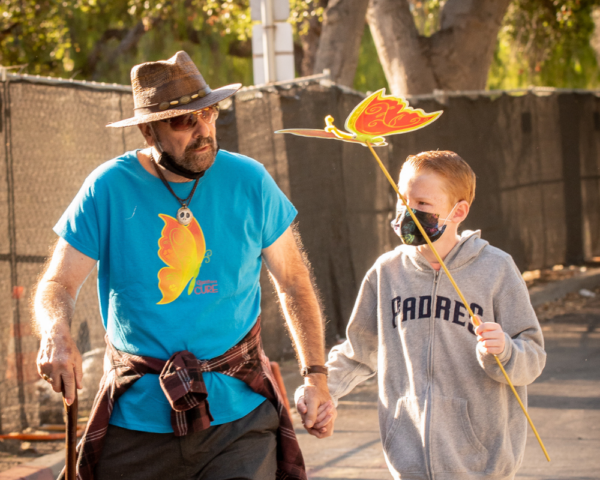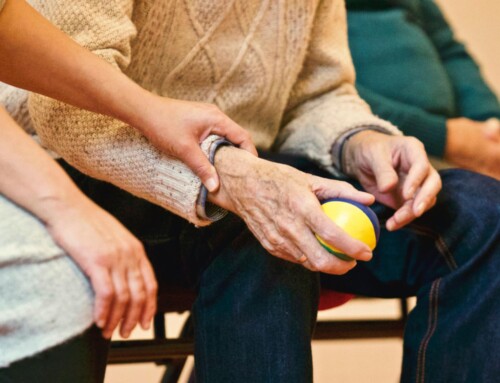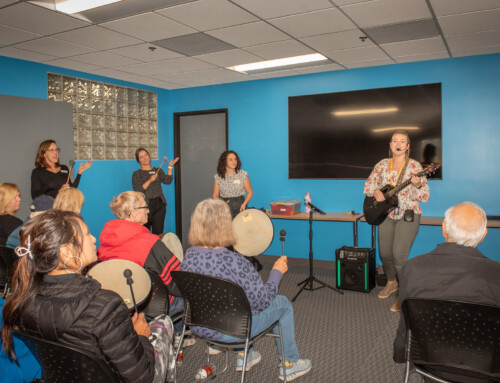
It is natural to want to protect children from difficult or confusing situations, but it is important to remember that, like adults, young people need information and support when someone they are close to is living with dementia. We’ll explain how to discuss dementia with children to help them to better understand and cope with what is happening.
How children can be affected
Children may experience many emotions in response to changes brought on by dementia. Some of these are similar to what adults experience, such as grief, sadness, fear, and irritation or embarrassment about behaviors. Others include:
- Confusion about ‘role reversal’ (being responsible for someone who used to take care of them)
- Anger if other family members seem to have less time for them than before
- Shame from a belief that they may have caused the dementia because of something they did
- Guilt for feeling any of these emotions
Talking openly and honestly
Children can be very perceptive, and it is better to avoid trying to hide what is happening. Instead, explain the situation as accurately, clearly, and calmly as possible while adapting what is said to the child’s age, ability to cope, and level of understanding. Try the following tips:
- Watch videos or read books together on the topic to help explain what is going on.
- Be patient – explanations may need to be repeated depending on age and developmental level.
- Encourage the child to ask questions if they have them.
- Use simple examples of behavior that might seem strange, such as the person forgetting where they are or wearing a hat to bed.
- If the person is able, they themselves may want to talk with the child about their experience; it may help to have another adult present to support the person if needed.
- Suggest the child explain to their friends what is happening to help them understand as well.
Responding to emotions
It is important to reassure children that they aren’t alone and to help them feel that others understand what they are going through. Here are some suggestions:
- Check in regularly to ask how the child is feeling and give them an opportunity to share.
- Let the child or young person know that they are still loved and valued, however preoccupied, sad, or frustrated the adults in their lives may seem.
- Emphasize that it is the disease causing changes; it is never the child’s fault.
- Make sure to regularly set aside time to spend one on one with the child.
- Don’t be afraid to use humor if it feels right, laughing about the situation together can help.
- Remind them that at any stage of the condition, the person can still hug the child or hold their hand. This can be a good way of reducing fear and maintaining a positive relationship.
Getting children involved
Finding ways to involve the child or young person in assisting the person living with dementia can help make the situation seem more normal and prevent them from feeling left out. Try to provide tasks that make them feel included without interfering with their everyday lives or overloading them with responsibility. The following tips may help:
- Let them know that simply being with the person and showing them love and affection is the most important thing the child can do.
- Try to ensure that the time they spend with the person is pleasurable. Activities could include going for a walk, playing games, sorting objects, listening to music, or making a scrapbook.
- Take photographs of the child together with the person living with dementia as a reminder that there can be good times, even during the illness.
- Make sure that the child or young person knows that their help is appreciated.
- Be aware of what might make the person upset or confused, and be prepared to provide an explanation and reassurance if this occurs when the child is present.
For more information and support regarding dementia, call us at 858.492.4400 to speak with a dementia expert, see our upcoming education classes, and view the rest of our free services.




